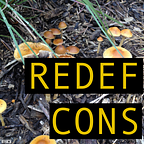Apolitical Environmentalism Cannot Exist. Here’s Why.
National parks were a bipartisan issue until they became a symbol of power. Of course, in politics, as in environmentalism, everything relates back to power.
In the eyes of the anti-park caucus, national parks are showy displays of governmental authority. Federal lands mean federal interference in our lives. They restrict individuals’ independence and freedom. They are not subject to the free market, and so they undermine the democratic capitalist way of life.
Yet, as taxpayers, protected land belongs to Americans. The wilderness is an equalizer that embodies democratic values. National parks exist by and for the people — the ones who truly hold this nation’s power.
Unfortunately, while these arguments serve different political parties well, both of them harm the public economically and in terms of social justice. Parks are the classic example of a public good — a good whose use is not easily limited to a select group and whose use does not prevent others from using it in the same way. These types of goods are difficult for private individuals or companies to provide because their nonexclusive, nonrival nature makes profit nearly impossible. So, the responsibility of maintaining a public good typically goes to the state. This ensures that important goods not provided in the free market are available for the public. Selling federal lands or passing legislation that disassembles critical land acts, such as the Antiquities Act, takes land away from the public rather giving power back.
The idea of land as democracy is equally problematic. It glosses over the basic history of our national parks, and it dismisses today’s realities for many people. Without easy access to parks, only a privileged group can benefit from them. We say that the parks are for everyone — and there are some incredible diversity initiatives happening now — but they are still a largely white-dominated space. Plus, the creation of the national park system resulted in the widespread dispossession of Native Americans. In order to argue that parks are for all Americans to enjoy, we must address these barriers and buried histories.
Environmentalism intersects with many ideologies, sectors, and yes, politics. Because the environment is entangled with ourselves, we cannot separate our political ideas from our environment. Instead, we must face the power issues that come along with politics and honestly work toward what is best for people and the planet. C. S. Lewis once said that “What we call Man’s power over Nature turns out to be a power exercised by some men over other men with Nature as its instrument.” Even back when national parks were a bipartisan issue, we should have been keeping that in mind.
With nature comes power, and where there is power, there is bound to be politics. For better or for worse, apolitical environmentalism will never exist.
- Originally published at redefineconservation.com.
- Questions? Comments? Want to write for us? Email us at redefcon@gmail.com or tweet @Redef_Cons!
- Thank you for reading!
